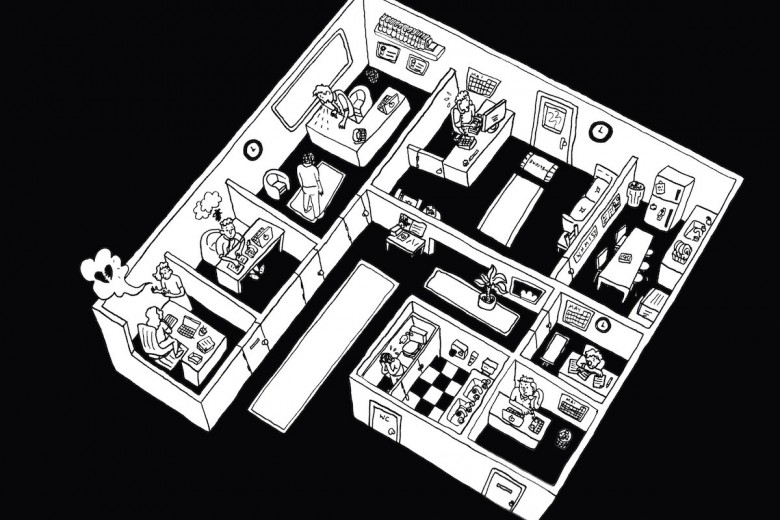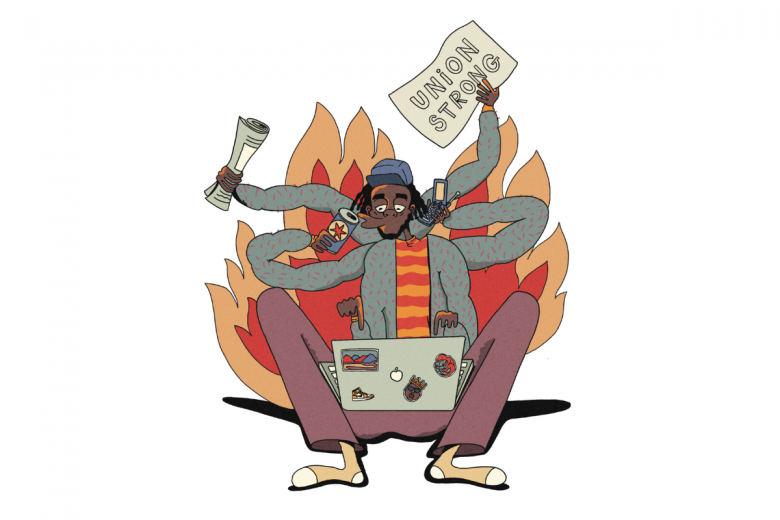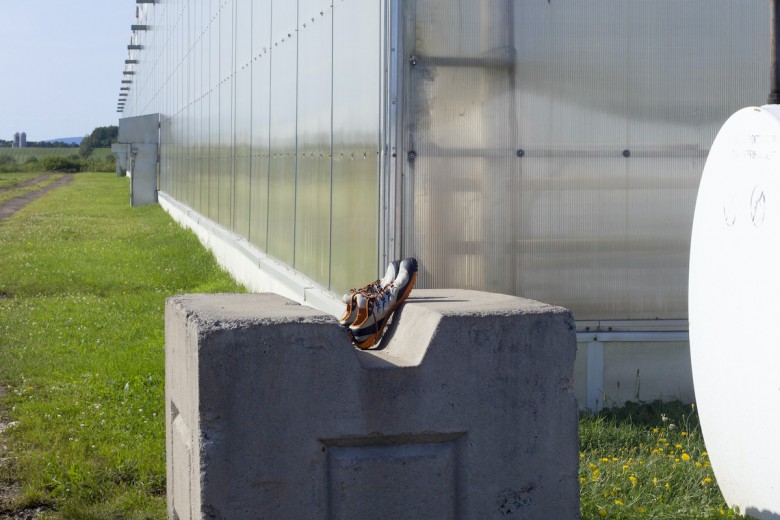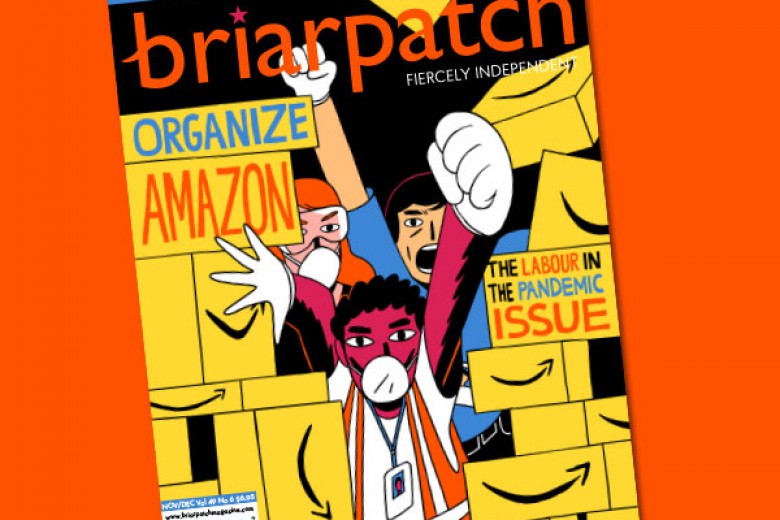Winner of the Andrea Walker Memorial Prize for feminist health journalism
Content warning: this article discusses sexual assault
Thirty years ago, a United Nations staffer named Catherine Claxton was shot at as she sat down to a meal in a restaurant.
Claxton was embroiled in a sexual harassment case against an under-secretary general in the United Nations Development Programme (UNDP), Luis Maria Gomez. She had alleged that in 1988, Gomez grabbed and kissed her in his office, made sexual remarks in a meeting, and that later as her supervisor he continued to harass her and tried to eliminate her job. After reporting him, Claxton found herself at the centre of a highly publicized sexual harassment case that would last six years. During that time, top officials, including senior women at the UN, turned against her; colleagues closed ranks around Gomez; and others refused to provide witness testimony.
Joanne Sandler and Julie Thompson, two women who worked for the UN for many years, recount these details in the Gender at Work podcast episode “Patriarchy Impeached.” They are compiling a history of the Claxton case and have interviewed her lawyers, Ellen Yaroshefsky and Mary Dorman, along with others close to Claxton at the time (Claxton passed away from breast cancer in 2009).
Together, these incidents at aid organizations have given rise to what some are calling #AidToo.
In 1992, then-secretary general of the UN, Boutros Boutros-Ghali, appointed an independent judge to oversee a closed tribunal. Gomez was defended by Alan Dershowitz, a Harvard-trained lawyer who has represented Claus von Bülow, O.J. Simpson, Jeffrey Epstein, Harvey Weinstein, and Donald Trump during his impeachment trial. The judge ruled that Gomez’s attack on Claxton constituted sexual assault, awarding Claxton $94,000 in compensation along with $110,300 for legal fees and $6,500 for costs. Gomez resigned, and the administrator of the UNDP sent out a memo saying it was because he had “completed the mission”; Gomez was then rehired as a senior consultant a month later. As a UN consultant, Gomez would retain diplomatic immunity, which protects UN staff from prosecution in local jurisdictions.
Three decades after Claxton’s ordeal, and shortly after the #MeToo movement burst into mainstream media, allegations of sexual violence, discrimination, bullying, and abuses of power continue to plague the UN as well as organizations like Oxfam, Save the Children, and Amnesty International. Together, these incidents at aid organizations have given rise to what some are calling #AidToo.
Time and again, leaders of aid organizations have wilfully ignored these abuses – thus enabling them to continue.
In the worst of these instances, staff of these organizations have sexually exploited and abused people who are the so-called “recipients” of international aid. Various reports and inquiries have revealed that UN military and civilian personnel have raped women and girls in Haiti, Somalia, the Central African Republic, and the Democratic Republic of Congo. The UN has faced legal claims and criticism about “peacekeeper babies” that have been abandoned following deployments. A recent Charity Commission inquiry concluded that Oxfam had failed to act on reports that their workers sexually exploited women and girls, some as young as 12, in refugee camps following Haiti’s devastating 2010 earthquake. Time and again, leaders of aid organizations have wilfully ignored these abuses – thus enabling them to continue.
Engineers Without Borders Canada
“More impactful than the actual assault that occurred overseas was the organizational response to my assault – and that was very much blaming it on me, and a lot of minimizing and questioning the reality of the experience,” says Aakhil Lakhani, a former volunteer and staff member of Engineers Without Borders Canada (EWB).
Aakhil Lakhani. Art by April Dela noche Milne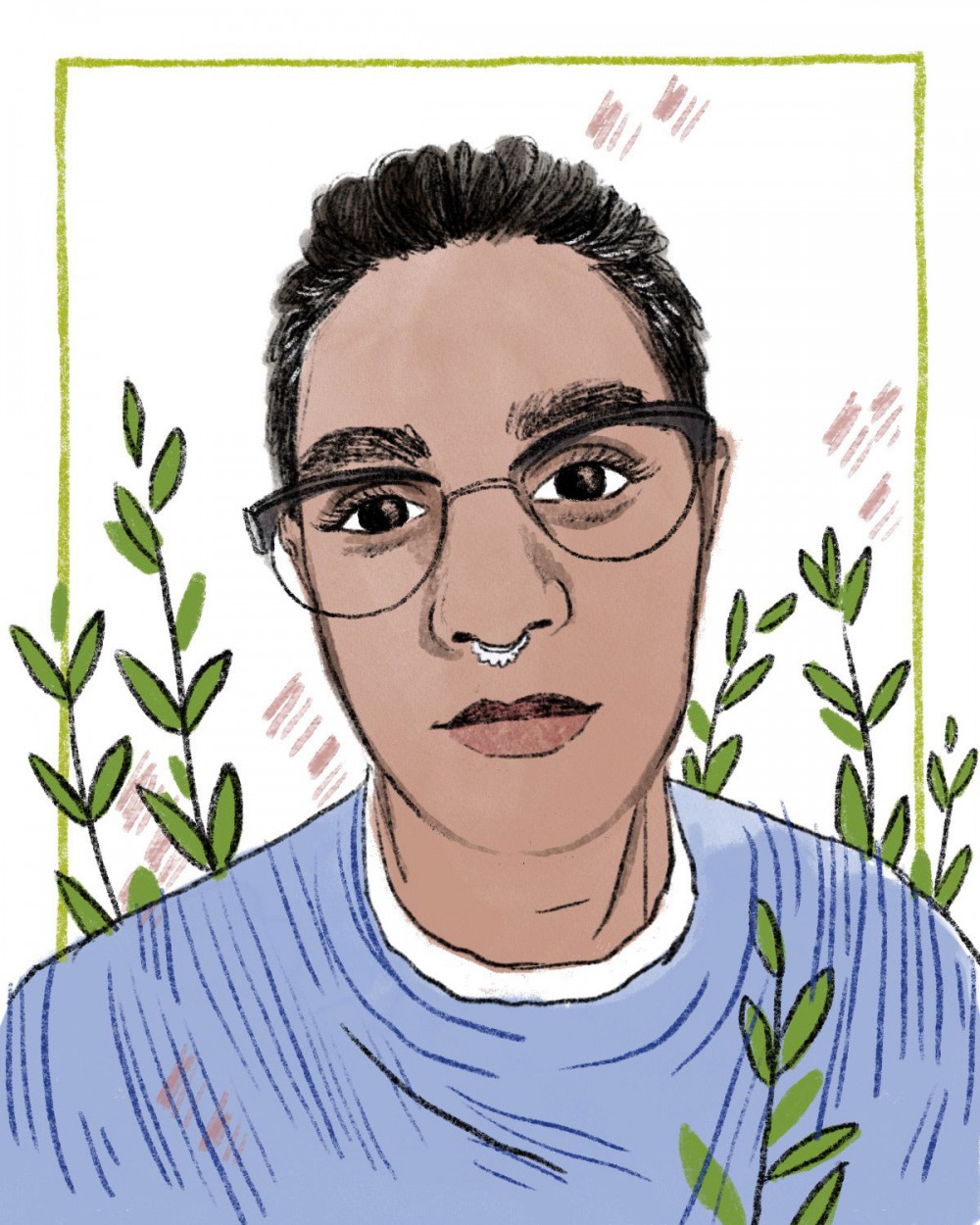
Lakhani is a chemical engineer and an organizer for environmental and social justice based in Treaty 6 territory, Edmonton. They were involved with EWB for about four years, as both a University of Alberta chapter member and as a staffer at the organization’s national office. Lakhani and I originally connected when they happened upon a project I’d started with another former EWB staff member, Alex Fox, that we called “Total System Failure.” In early 2019, I publicly broke a non-disclosure agreement (NDA) EWB had me sign in 2013 after I reported my supervisor for harassing me while working in Malawi for the organization in 2011 (he was subsequently promoted by EWB and continues to work in the humanitarian sector). Fox and I then created a website and called upon former staff and volunteers from EWB and the broader NGO sector to share stories of harassment, discrimination, and abuses of power. As time went on, over 70 former and current EWB staff, fellows, and chapter members signed on as public supporters of the project. Lakhani was one of the first to get in touch directly, forwarding documentation and sharing testimony of what they had experienced.
“It destroyed me for years,” they recall. “I was just kind of chronically ill, in pain, really depressed, [and] had a hard time functioning in the world.”
After being sexually assaulted by a man at a partner organization while they were an EWB junior fellow on a placement in Ghana in 2014, Lakhani tells me they first spoke to the junior fellowship coordinator. “She directed me to seek emotional support from a former staff member who was no longer involved with EWB, and then directed me to the reporting process that was in place within EWB,” they say. Lakhani filled out several versions of an incident report, and they were told at one point they would be removed from their fellowship placement and returned early to Canada. They were also directed to a telephone counselling service that they could not access due to local phone costs. EWB did not terminate their partner agreement with the perpetrator’s organization after the incident. Lakhani remained on their fellowship placement but did not work with him directly.
Even though Lakhani asked for the organization to follow up on their report, they didn’t hear much response for three months. They tell me they reached out to three different members of EWB’s community team, as well as three executives, including George Roter, EWB’s co-founder and CEO at the time.
Lakhani recounts having to take a year off from school in an attempt to recover, and spending thousands of dollars on medication and therapy while receiving no material support from the organization. “It destroyed me for years,” they recall. “I was just kind of chronically ill, in pain, really depressed, [and] had a hard time functioning in the world.”
“I internalized that it was my fault this happened to me, and I wanted the barest amount of support to be OK, and that was access to community to be supportive, and I couldn’t even get that within EWB.”
When they asked for support from EWB, Lakhani says “the response was unanimously ‘We are not equipped to provide this service.’”
“It was very much that it was my fault, ‘you shouldn’t have gone on the JF [junior fellow] placement if you couldn’t deal with this, you knew the risks.’ Very much a culture of ‘you shouldn’t be in this role if you can’t hack it,’” they continue. “I internalized that it was my fault this happened to me, and I wanted the barest amount of support to be OK, and that was access to community to be supportive, and I couldn’t even get that within EWB.”
Most troubling was that Lakhani’s experience occurred only one year after I had signed the NDA with EWB in 2013, after a mediation with EWB leadership in which I had notified them I had been diagnosed with post-traumatic stress disorder due to what had happened while working for them in 2011, and I had raised a range of health and safety issues, including workers’ risk of sexual harassment and assault. The executive team at the time, consisting of George Roter, Mark Abbott, and current CEO Boris Martin, had assured me that the issues would be dealt with swiftly.
Lakhani also spoke publicly about their experiences in a podcast episode with me in June 2019 and wrote an open letter highlighting a pattern of harm toward young workers and volunteers at the organization. It was met with silence from EWB, and this has continued to the time of my writing this in May 2020. “It’s a little incredible that they haven’t reached out to me,” Lakhani says. “The response is so disheartening that I’m really glad that I’m not in a place where I need the support of a good response.”
“That’s a painful way to go about getting what I want, which is to reduce the amount of harm they’re doing, to be held accountable to the same standards as other organizations.”
I asked Lakhani what a “good response” might look like. “It would be them saying, ‘I’m really sorry that this happened to you. I’m sorry that the organizational response failed you in these ways,’” they explain. “Acknowledging that this is a pervasive and systemic issue in the organization and sector that they commit to addressing, with more robust policies and a cultural shift. I would want an acknowledgement of the ways in which misogyny and racism played into the response both toward me and the person who perpetrated this.”
EWB, which has a legal obligation of “duty of care” to their staff and volunteers (including protecting them from foreseeable harm), has been advised by several lawyers. Lakhani’s case following on the heels of my own certainly might fall under “foreseeable harm.” The standard legal advice in such a situation warns that a public apology and taking responsibility for the issues would expose the organization to a potential lawsuit. “I could sue them regardless. I have documentation of everything I’ve said,” Lakhani notes. “That’s a painful way to go about getting what I want, which is to reduce the amount of harm they’re doing, to be held accountable to the same standards as other organizations.”
Dying with Dignity Canada
Shanaaz Gokool. Art by April Dela noche Milne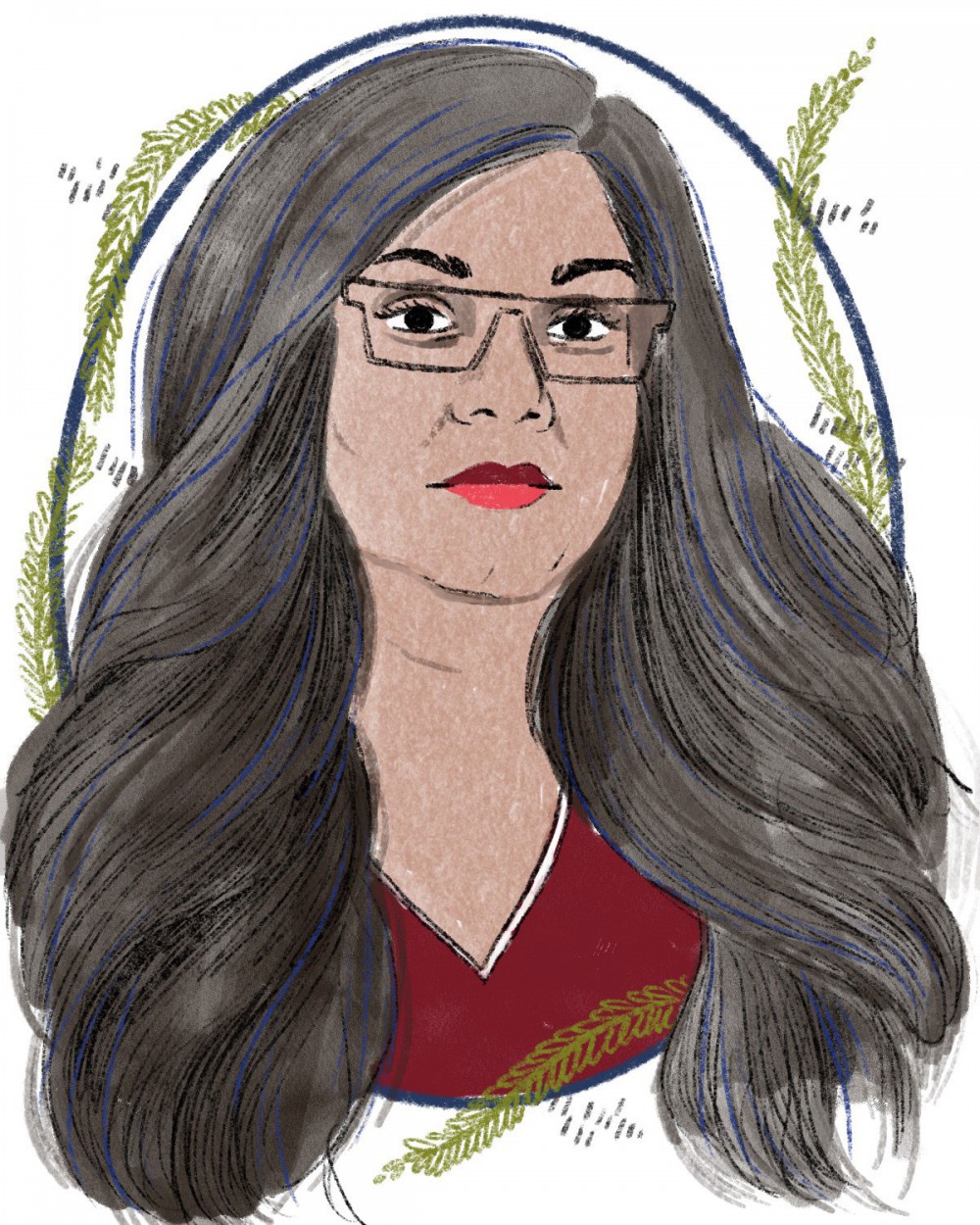
Workers in the domestic non-profit sector also suffer when non-profits allow harassment and discrimination to fester. Shanaaz Gokool was chief executive officer (CEO) of Dying with Dignity Canada, an organization that advocates for assisted dying legislation and the rights of those seeking end-of-life options. After she was fired in July of 2019, she filed a wrongful dismissal lawsuit that includes allegations of “systemic discrimination and reprisal.” The lawsuit alleges that as CEO, Gokool (who immigrated from Trinidad and Tobago as a toddler) was paid less than two of her white subordinates for the first quarter of 2019. Dying with Dignity’s board of directors filed a defence denying Gokool’s allegations. The case is currently making its way through the Ontario Superior Court of Justice.
In May 2019, Gokool raised concerns with the board of directors about systemic racial discrimination within the organization and suggested entering into a mediated process to examine the issues. The board hired external counsel and initially appeared to want to engage in a good-faith process, but they then fired Gokool on July 23.
“I just thought that, if this is so hard for me as the CEO, I don’t know what anyone else goes through,” she says, “and why do we have to go through this?”
“There was no mediation, no investigation of the issues I had raised, no discussion,” Gokool says, noting that she felt it was her duty as CEO to bring matters of risk to the attention of the board. Gokool tells me that she believes she is the first former CEO in Canada who is also an immigrant woman of colour to blow the whistle on systemic discrimination at her former workplace. “I just thought that, if this is so hard for me as the CEO, I don’t know what anyone else goes through,” she says, “and why do we have to go through this?”
Gokool shares stories of everyday racism she’s experienced in the non-profit sector, like the time she was invited to be a speaker at a community event in Toronto in 2017, but when she arrived she was told by one of the organizers that she must be in the wrong room. “That’s the banality of racism, right? It’s not overt, no one called me anything; it was just an assumption and a dismissal,” she notes.
While it is often discussed among insiders that the non-profit sector in Canada struggles with diversity and inclusion issues, particularly at the board and executive levels, there are few statistics available. In 2013 Fairouz El Tom, reporting in the Guardian, surveyed Global Journals’ Top 100 NGOs and found that 66 per cent of those on governance boards were of European ethnicity and that over half of board members were affiliated with the arms, tobacco, and finance industries.
“Patriarchy and misogyny and violence can be reproduced by women. The system relies on targets to uphold and reproduce it."
“There’s a real need in the sector for comprehensive demographic data, including data on race issues in the sector – are we as progressive as we think we are?” Gokool says. I ask whether Gokool thinks hiring more women, people of colour, and LGBTQ2S+ people could meaningfully shift an organization’s culture, and I share my observation that increasing the number of women at the board and executive levels did not seem to prevent retaliation toward survivors, for example. “I think what we sometimes forget in our hopes and plans around diversity, these unconscious biases are internalized by women and people of colour, and then it gets reproduced. We’re all part of it,” Gokool replies. “Patriarchy and misogyny and violence can be reproduced by women. The system relies on targets to uphold and reproduce it. And sometimes it’s too hard to fight this. That’s why we have to set up other systems of accountability, otherwise the results can be exactly the same.”
“There’s something hard about that,” Gokool admits, “but we can’t be naive about how change really happens.”
A “wall of power”
As the Anita Hill hearings unfolded publicly in 1991, the UN kept the Claxton case behind closed doors. Claxton’s lawyers said they came up against a “wall of power” when trying to get witness testimony or corroborating evidence to build their case, and since they were both public defenders they faced additional difficulties due to their unfamiliarity with the UN internal administrative justice system.
Claxton would go on to push for significant reforms to the UN’s internal justice system, and her colleagues say she helped establish the Office of Staff Legal Assistance, which still exists today. A former colleague wrote the following in a booklet compiled for her memorial in 2009: “Many people were involved in this effort. But she was the one with the true passion. She had seen a lot of injustice and unfair treatment of staff, and worked tirelessly on their behalf.”
Claxton ultimately stayed at the UN for 35 years, despite facing a textbook case of what scholars Jennifer Freyd and Carly Smith have deemed “institutional betrayal” – the failure of institutions to prevent sexual assault or respond supportively.
“People have to be able to speak about their experiences without being slapped with a defamation lawsuit. Organizations can just silence people with fear and threats."
For those working in NGOs or non-profits in Canada, finding accountability when their employer engages in misconduct presents enormous challenges. Workers who find themselves stymied by ineffective HR processes or sham internal investigations do not have many places to turn; non-profits in Canada are not subject to external oversight in the form of an ombudsperson or regulator (such as the UK’s Charity Commission) to complain to about abuse or other ethical breaches. Workers posted overseas or moving between countries may face complex international jurisdictional issues that hamper their ability to file legal challenges. Organizations are not prevented from forcing workers into private arbitration or asking them to sign NDAs, enabling perpetrators to avoid accountability and move freely between agencies. Whistleblowers can be threatened with defamation lawsuits if they speak out, helped along by Canada’s weak defamation law, lack of anti-SLAPP (strategic lawsuits against public participation) protections in most provinces, and lack of whistleblower protection for third-sector workers. Most non-profit workers – the majority of whom are women – are not unionized.
Gokool, who has experience at the executive and board levels of non-profits, says there are fundamental failures of governance that need to be addressed. “People have to be able to speak about their experiences without being slapped with a defamation lawsuit. Organizations can just silence people with fear and threats. NDAs need to be lifted so that we can understand what’s going on, so that the public knows these organizations respect free speech and respect their employees,” she says. “I think, anecdotally, a number of these issues get raised by volunteers or staff and they sometimes try to move it up the chain, and there is a kind of resistance that comes at the higher levels of the organization – whether it’s the executive level or board of directors.
A lot of board members are inexperienced, and there is a lack of clarity between director roles and staff roles. We need to strengthen the governance model and prop up more measures on accountability and transparency. Saying the problem doesn’t exist is not a way of inspiring confidence.”
"You find a lot of the advice passed along is not really friendly to workers. Employees deserve the same standards that the sector is supposed to uphold around the social good.”
Gokool adds that organizations often manage crises by hiring the same public relations firms and legal advisers used by the private sector, and they then end up following advice geared toward mitigating liabilities and preserving a company’s profitability and reputation. “Sometimes that just means ‘get rid of that person, they’re too much trouble,’” she says. “Similar things happen in human resources departments. A lot of organizations in the sector don’t even have an HR person, let alone a whole department. You find a lot of the advice passed along is not really friendly to workers. Employees deserve the same standards that the sector is supposed to uphold around the social good.”
Gokool says that, even as a CEO, speaking out and filing a lawsuit was the hardest thing she’s ever done, and that we can’t expect those in more precarious situations to be able to access justice for themselves or take on the larger issues with no support. For local workers and aid recipients in countries devastated by natural disasters, war, and colonialism, vast power and wealth disparities mean that reporting sexual assault or abuse by a Western aid worker (and receiving any measure of justice) is a monumental and probably futile undertaking. Even if a person had the resources to pursue a complaint, there are few mechanisms for accountability or redress. “The people that organizations purport to serve are people that don’t have access to means of holding them accountable,” Lakhani says, “Obviously not a coincidence.”
Given the lack of accountability at the organization, sector, and state levels, whistleblowers have sometimes resorted to raising issues through the mainstream media, where dynamics have become particularly explosive. The mishandling and concealment of such abuses may call an organization’s entire mission into question. “How can you responsibly, legitimately, or with credibility do that work externally if you can’t manage your internal issues when they’re raised?” Gokool asks. “Especially when so many of these organizations are grounded in principles of social justice and human rights and equity.”
The “problem” NGO worker
In researching Claxton’s case, I learned that in 2007 she had become the oldest American woman to swim the English Channel, on her fourth try. Struggling through cold currents in the dark, she dragged herself onshore, triumphant, 22 hours later. Whatever stubbornness possessed her to do this, I imagine she brought the same spirit to her work. A UN colleague who worked closely with Claxton on the Panel of Counsel for fifteen years wrote, “The most striking quality I observed was her determination to take action toward what she considered right and good, without regard for its effect on her own wellbeing.”
Feminist scholar Sara Ahmed writes, “in exposing a problem you pose a problem.” (EWB must have taken this literally; a staff member told me in 2013 that I was being referred to in internal documents as “the Chelsey problem.”) Exposing these issues is necessary, but the cost is often painfully high. You can hear this in the testimonies of Gokool and Lakhani, who use terms like “crushing” and “soul-destroying” to describe their respective experiences, while assuring me they both would do it all over again because it was the right thing to do.
“How can you responsibly, legitimately, or with credibility do that work externally if you can’t manage your internal issues when they’re raised?”
Those who have experienced the sharp edges of systemic problems often are able to map out and help implement solutions. “I’ve been inspired by my lived experience and listening to the stories of so many other people since I went public,” Gokool tells me. “We who have experienced this have the ability to provide the analysis, and we are the experts on these issues. We can put our experience into a larger context and point out the systemic issues. We should be celebrating and championing these voices and stories.”
The stories of those who’ve come up against walls of power provide warnings but also encouragement for all of us to take the critical steps: first recognizing and stopping harm where it happens, supporting those who have been hurt, and then expanding our view to question the form, function, and even the very existence of these institutions. If we want to solve the problem, we may need to become “the problem.”



